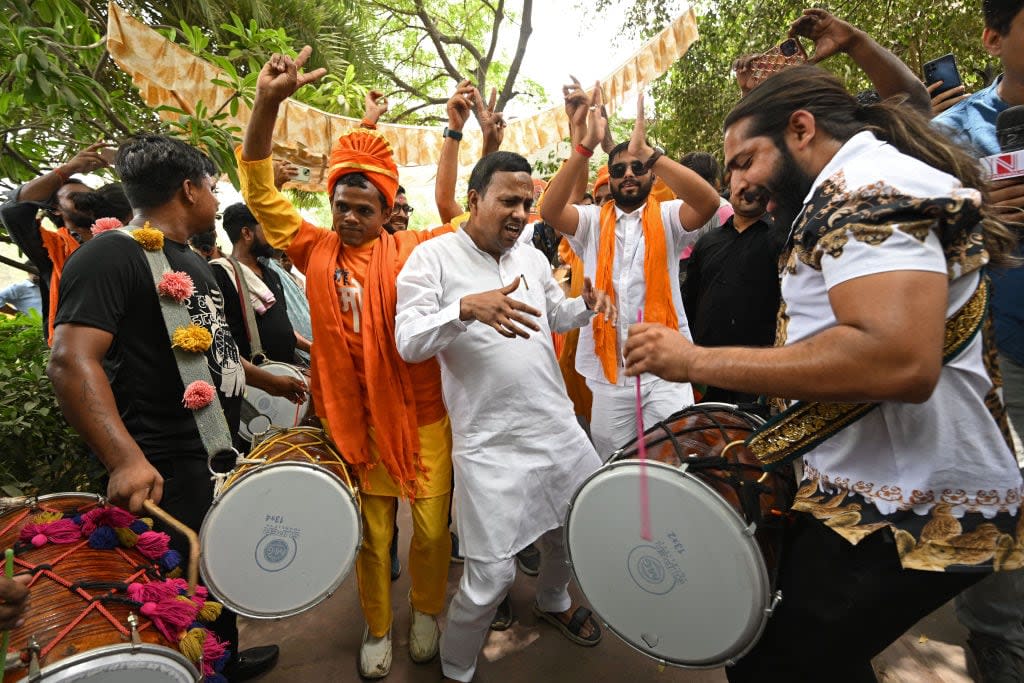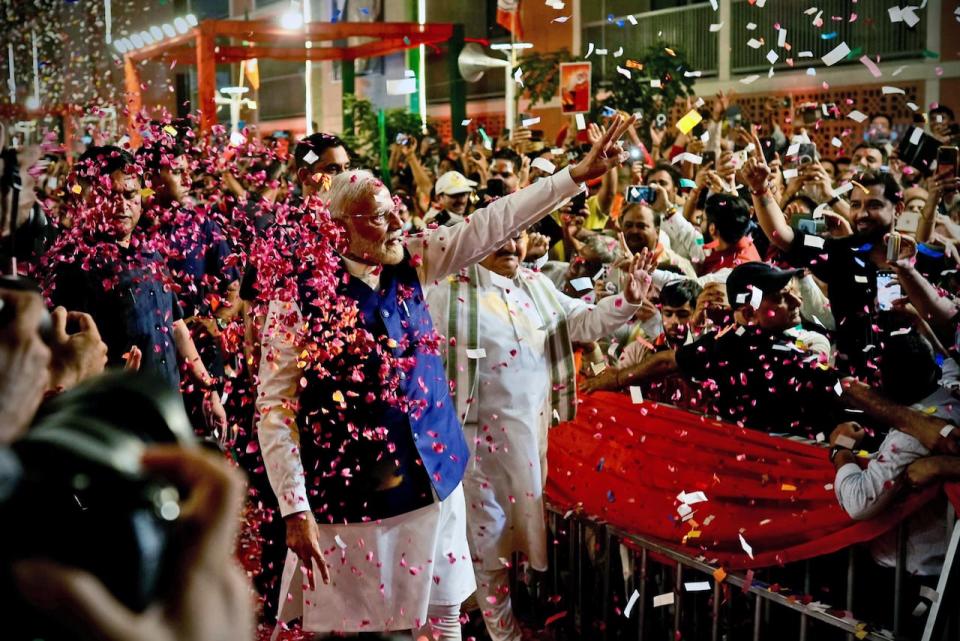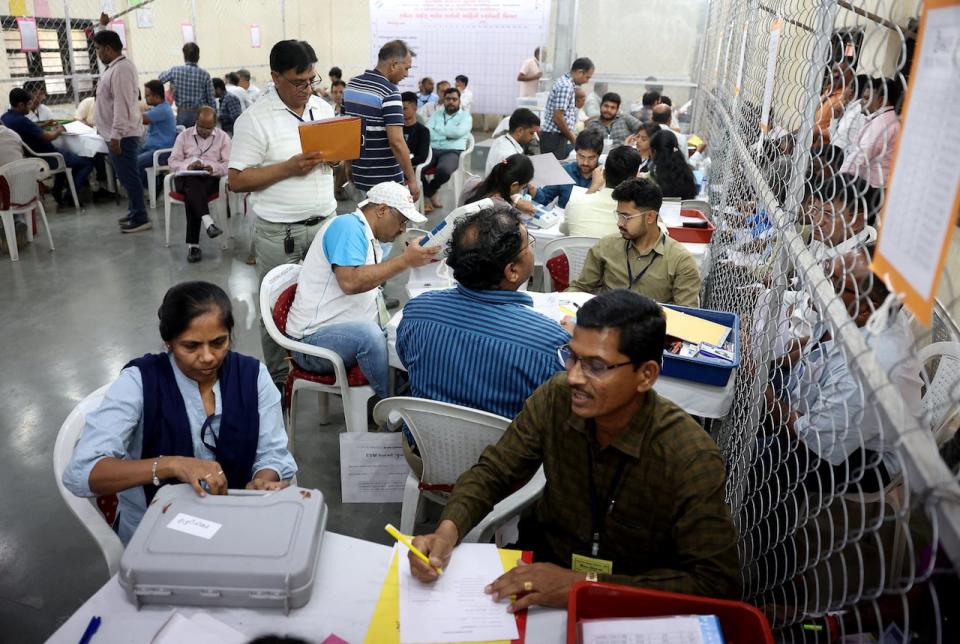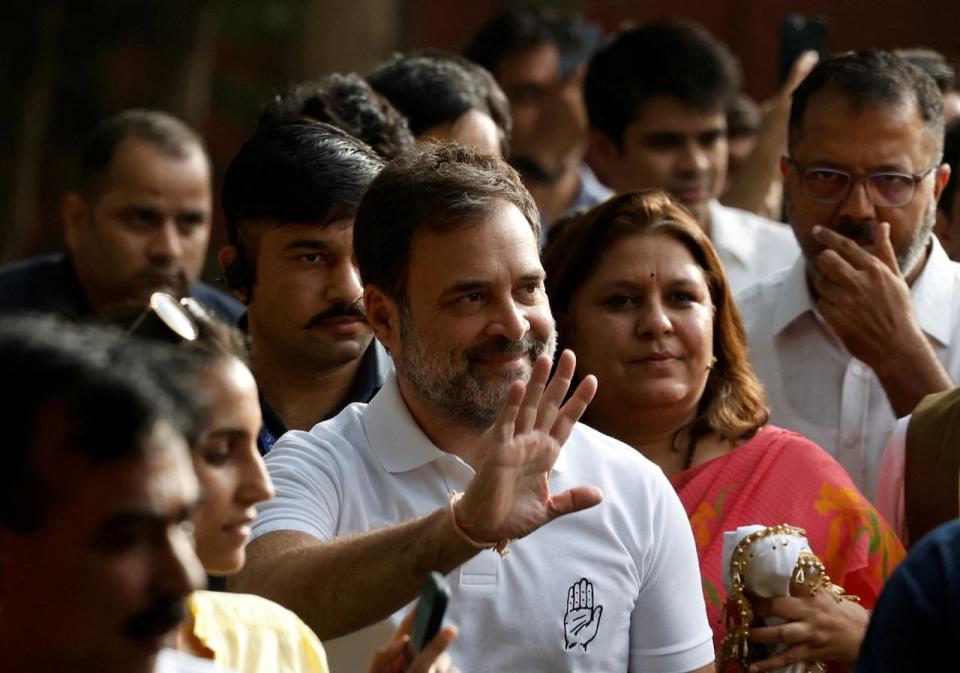After India election, B.C. diaspora reacts to growing opposition

While India's Prime Minister Narenda Modi is looking toward a historic third term in office, the country's general election has revealed growing opposition to its leader — and that's drawn reaction from the large Indian diaspora in British Columbia.
With the vote count continuing, Modi's Hindu nationalist party appears unlikely to secure a majority on its own despite pre-election hopes of a landslide victory.
The results mean the Bharatiya Janata Party (BJP) will need to rely on smaller partners to form a government.
Modi, 73 — who will become just the second Indian leader to secure power for a third term after Jawaharlal Nehru, the country's first prime minister — has never previously been in a position where he has needed to rely on coalition partners.
Sanjana Chawla says her family, who support Modi, are reeling from the results.
But the Chemainus, B.C., resident says she's happy because the results will allow other people and parties to have a stronger voice in parliament.
"It's a loss worth celebrating," said Chawla, 45.

Modi is greeted by supporters as he arrives at BJP headquarters in New Delhi on Tuesday. (Manish Swarup/The Associated Press)
Sumeet Bajaj, who moved from India to Surrey, B.C., in 2019, described the election in the world's most populous democracy as "dynamic."
"It's always good to have a strong opposition," he said. "Democracy has lived again."
He said he was particularly impressed with the number of people who turned out to vote.
Nearly 970 million people — more than 10 per cent of the world's population — were eligible to vote in India's election and turnout averaged 66 per cent, according to official data. Voting began on April 19, lasting six weeks.

Election staff members open an electronic voting machine to count votes in India's general election at a counting centre in Ahmedabad on Tuesday. (Amit Dave/Reuters)
Jasleen Kaur, a 39-year-old documentary writer and producer living in Surrey, B.C., said the Indian diaspora in B.C. is "mostly anti-Modi," but she identifies as fairly neutral when it comes to Modi's politics.
Kaur said she's "proud" of the people of India, and that they've "humbled" Modi.
"[Voters] have spoken that we need a strong opposition," she told CBC's The Early Edition host Stephen Quinn on Tuesday.
"That's very exciting for Indians and for us living abroad, who watch this election very closely."
Religious politics
Hindu nationalism has become the dominant political ideology in India in the past decade under Modi, whose party has been accused of aggravating religious tensions and steadily eroding the secular principles enshrined in India's constitution.
Indian political analyst Arati Jerath told CBC in April that Modi and his party's "main appeal" for many is their positioning as a champion of Hindu nationalist sentiment, "saying, you know: 'We will take care of Hindus, we are your party.'"
Chawla said politics in India has historically focused "too much" on religion.
Kaur, who grew up in Patiala in the Sikh-majority state of Punjab, said the election results show the people of India care about more than just Hinduism. Instead, they're focused on social issues that affect all Indians.

Rahul Gandhi, a senior leader of India's main opposition Congress party, waves as he arrives at party headquarters in New Delhi on Tuesday. (Priyanshu Singh/Reuters)
Kaur returned to India for a visit a couple of months ago and said Modi was all local media spoke about.
"Oh, the theatrics of it," she said, adding that Modi was portrayed as a "global peacemaker."
"I thought that was taking it a bit too far to present him like that, but that's all we saw. The publications were all talking about him, so it was very clear that [he was] really capturing the media."
She said one explanation for the election results might have been the fatigue many in India were feeling from seeing Modi and hearing about how wonderful he was all the time.
LISTEN | Jasleen Kaur and Mo Dhaliwal react to India's election results:


